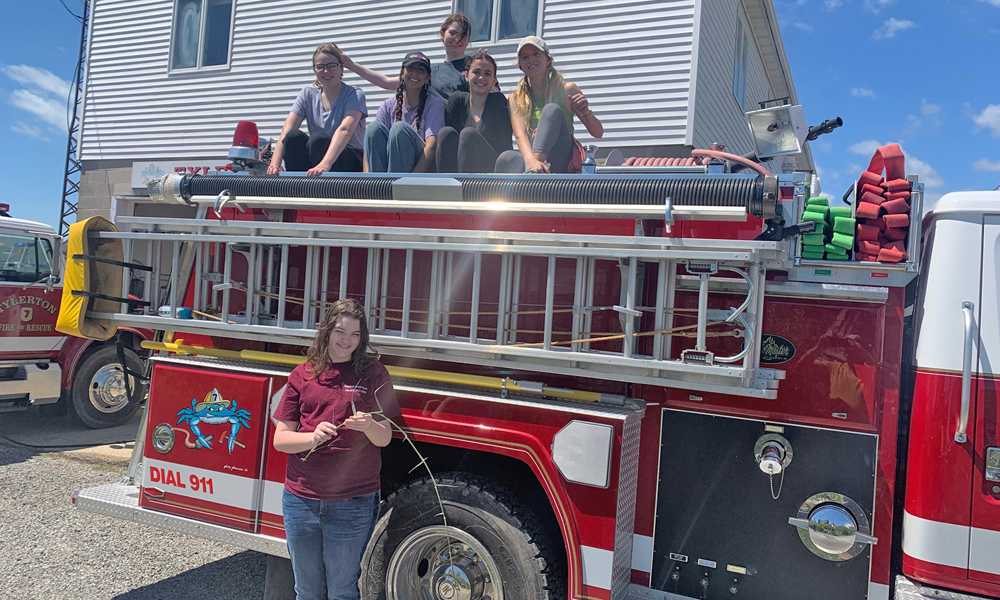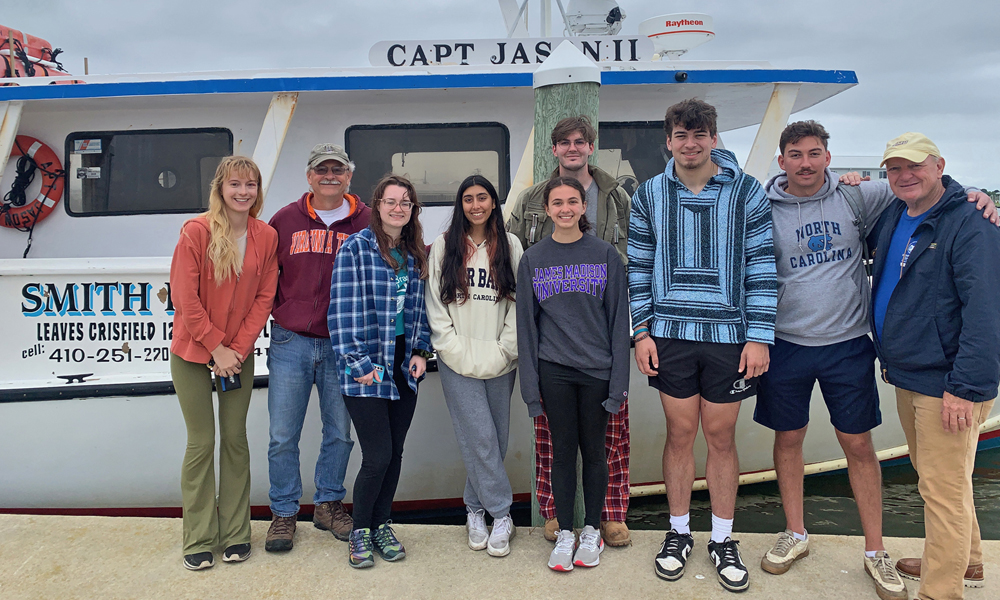Summer instructors focus on unique, engaging content
Featured Stories
SUMMARY: Students taking summer courses are paired with professors who strive to create an intriguing and innovative experience for them.
This article and other exclusive content is available in the Madison app. ![]()
The idea of summer school may not spark the best feelings or memories, but some professors at JMU are striving to change that.
From navigating vacations to inspiring student engagement, summer instructors work to deliver a unique learning experience.
ISAT professor Eric Fitzgerald led a one-credit interscience research course (ISCI104) called Chesapeake Horizons, in May. Although it was only one week, every minute of the class was packed with experiences.
Fitzgerald accompanied a small group of students to Tylerton, Maryland, for a three-day trip to Smith Island, in the heart of the Chesapeake Bay. “For my class, a community action project is incorporated. This year, we helped the Tylerton Fire Company inspect and test fire hoses,” he shared.

Along with the trip, they also toured farms and visited riparian buffer zones.
Student engagement isn’t a concern for Fitzgerald. “Students who take summer classes are often only taking one class,” he said. “Students seem to like the fast-paced, to-the-point instruction.”
The biggest challenge he faces as a summer instructor is securing funding to conduct the kind of experimental classes and service work he wants his students to participate in.

Summer courses present a unique opportunity for all students, even nontraditional ones.
Joy Myers, director of on-campus and paraprofessional teaching fellows, is overseeing one such course, LED350, for the first time this month. The literacy education class spans six weeks and combines online instruction with synchronous classes once a week.
|
“The key to success is staying on top of assignments and deadlines. Communication is also key. If a student is confused or needs more support, there is no time to waste!” — Joy Myers, director of On-Campus and Paraprofessional Teaching Fellows |
“It is offered to nontraditional students who are employed as paraprofessionals in the schools and are working to earn their degree in Elementary Education, so they can one day have their own classrooms,” Myers said.
Working alongside another professor, Myers has been diligently planning the course since May.
The accelerated course schedule includes assignments that are due twice a week instead of just once. Myers finds this keeps her students busy enough, even if the course is the only one they are taking.
Myers will be teaching three courses this summer ranging from one to six weeks. She has taught summer courses since joining the JMU faculty in 2015.
“The key to success is staying on top of assignments and deadlines,” she said. “Communication is also key. If a student is confused or needs more support, there is no time to waste!”
